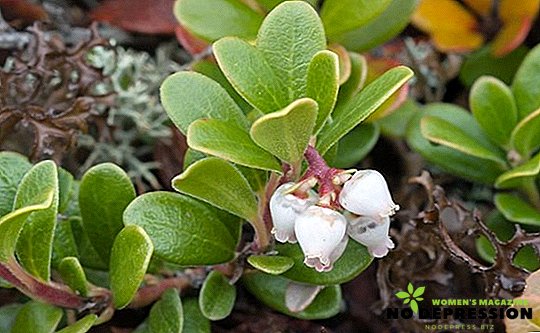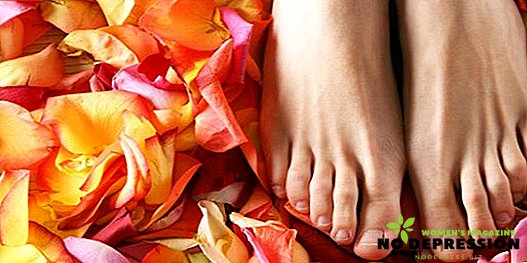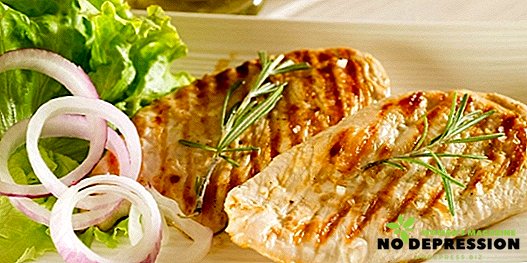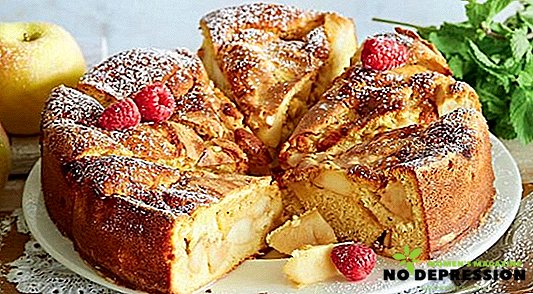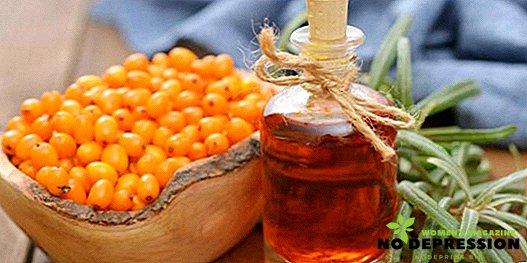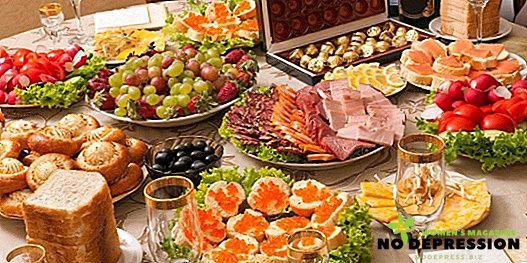Black elderberry is a plant with a mass of useful properties that are not known to everyone. This culture is widely used to treat various pathologies and for the preparation of many dishes. At the same time, there are poisonous species of black elderberry, so you need to know how to choose the right plant.
Despite the fact that culture has a mass of healing properties, it has contraindications to the use and may cause the development of undesirable consequences.
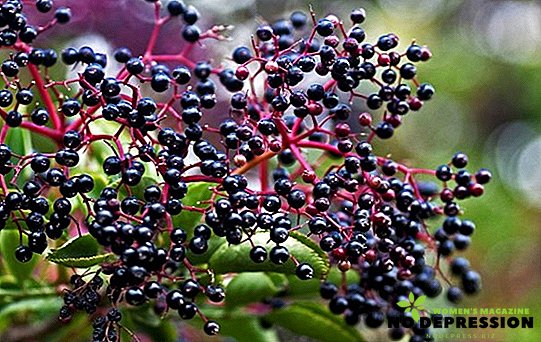
What is elder black
 Such a plant as an elder is black, has the appearance of a shrub up to 5 m high. The flowers are painted yellowish-white, gathered in large corymbose inflorescences up to 20 cm in size. August-September.
Such a plant as an elder is black, has the appearance of a shrub up to 5 m high. The flowers are painted yellowish-white, gathered in large corymbose inflorescences up to 20 cm in size. August-September.
The flowers of such a wild-growing culture contain no-nectar pollen, so insects rarely visit it. A feature of the plant is that it can be pollinated independently.
Black elderberry fruits have a spherical shape and are painted in black and purple. You can meet such a plant in light deciduous forests on hills, along rivers and on wastelands. Black elderberry is a thermophilic and sun-loving culture and does not tolerate shaded places.
Features and medicinal properties of flowers, leaves and fruits of the plant
Black elderberry is considered useful, it is used for the preparation of various medicines. The composition of the fruit includes a large number of biologically active substances, organic acids, minerals and various vitamins. In addition, elderberry is rich in phytoncides, tannins, alkaloids and other chemical compounds that have a positive effect on the human body.
Proper use of products based on this plant allows you to achieve the following effects:
- laxative;
- anti-inflammatory;
- bactericidal;
- antipyretic;
- wound healing;
- laxative;
- expectorant;
- pain medication.
 Eating the raw tender leaves of the plant allows for a short time to cope with swelling and constipation. Broth leaves is considered effective in eliminating pain and is indicated to stop bleeding.
Eating the raw tender leaves of the plant allows for a short time to cope with swelling and constipation. Broth leaves is considered effective in eliminating pain and is indicated to stop bleeding.
Broth of elderberry leaves is widely used to eliminate:
- burns;
- ulcers on the body;
- furunculosis;
- diaper rash;
- bedsores
Elderberry black is considered an effective remedy for pain caused by arthritis, gout, rheumatism and polyarthritis. Infusion and decoction promote active biliary excretion and normalization of the digestive process. If you have problems with metabolism, it is recommended to drink folk remedies based on bark, leaves, branches and roots of a plant. Also with their help it is possible to cope with excess weight.
How to harvest and use

As a medicine, plant leaves, flowers, fruits and bark are always used.
It is recommended to harvest raw materials during May and June, subject to certain rules:
- you can not collect the flowers of the plant immediately after the rain, because they quickly turn black and become unsuitable for use;
- The optimal time for collecting raw materials is 2-3 hours of the day in dry, sunny weather;
- it is best to dry the inflorescences in the open air in a shady place for one day;
- When using a special dryer or oven, the temperature should not exceed 35 degrees.
In the same way, and when harvesting elderberry berries black. It is recommended to dry them in the open air or in a special dryer for a longer time. Dried flowers can be stored no more than 3 years, and berries should be used within 6 months.
Infusions and black elderberry products are allowed to be ingested or used for local procedures. In the preparation of such folk remedies, it is imperative to observe the indicated proportions and dosage, thus avoiding unforeseen reactions of the body. With proper use, the flowers of the plant are considered safe, but before starting such therapy it is recommended to consult with a specialist.
To remove the bark from two-year branches during harvesting, it is necessary to start sap flow, after which it is cleaned and the core is removed. In addition, the upper layer of gray is scraped off and the bark is dried in an oven or dryer. To store such harvested bark is allowed no more than 3 years.
The use of elderberry in medicine
In medicine, black elderberry preparations are widely used as antiviral, antipyretic, antifungal and tonic.
In addition, this plant can be used to treat:
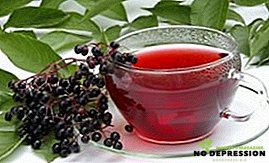 edema of various etiologies;
edema of various etiologies;- hepatitis A;
- malaria;
- bronchitis;
- gynecological diseases;
- skin pathologies;
- conjunctivitis;
- depressions;
- hydrophobia.
Traditional medicine offers the following recipes tinctures and compresses based on black elderberry:
- In a bowl pour 2.5 tsp. berries of the plant and pour them 150 ml of cold boiled water. The resulting mixture is left for 10 hours, then drink in the form of heat 1 time per day as a laxative agent.
- You can boil a few tablespoons of young leaves of the plant in milk, and then place in a thin cloth. Such a folk remedy is recommended for poultices for pathologies such as diaper rash, boils and hemorrhoids.
- Pour 200 ml of boiling water 1 teaspoon of flowers of the plant or young leaves. Leave the mixture for 10 minutes, then drink in small sips in the form of heat just before eating. Drink a few glasses of remedy a day for treating pathologies such as flu, dry cough, fever and rheumatism.
- To prepare black elderberry broth, you need to pour a tablespoon of flowers with a glass of water. After the mixture boils, it should be kept in a water bath for 15 minutes, cooled, filtered and taken as intended.
In the preparation of therapeutic baths usually prepared by the concentrated broth of elderberry, which is diluted in hot water. If necessary, local use of the broth is not filtered, but simply wrapped in cheesecloth and applied to the inflamed areas. In the treatment of gynecological diseases and hemorrhoids decoction is used for douching, and this procedure is necessary to carry out every day.
Black elderberry in cooking

Fresh berries of the plant have an unusual specific taste, but after heat treatment it disappears. Dry flowers and fruits have a sweet-sour taste that slightly resembles blueberries. Black elderberry is widely used in cooking for cooking various dishes. Fresh berries can be used to make jelly, mashed potatoes or jam, and fresh fruit juice is used to color wines and other beverages in the desired color.
Black elderberry flowers are widely used for the preparation of sparkling wines, liqueurs, tinctures and brandies. Especially popular is the elderberry honey, which is recommended to add to tea for colds, is with pancakes and other treats.
Fresh shoots of plants can be eaten or pickled, and elderberries can be used to prepare various confectionery products.
Precautionary measures
In order to avoid unpleasant consequences, it is necessary to learn to distinguish between red and black elderberry. Red berries can lead to severe poisoning, and eating too much can be fatal.
 When treating folk remedies on the basis of such a plant, it is imperative to observe the indicated dosage. The fact is that even a slight excess of it can cause the onset of symptoms of poisoning.
When treating folk remedies on the basis of such a plant, it is imperative to observe the indicated dosage. The fact is that even a slight excess of it can cause the onset of symptoms of poisoning.
The composition of the leaves, branches and fruits of the black elderberry includes glycosides, and in medicine such substances are used with increased caution because of the possible toxic effect. Eating a lot of berries or fresh juice can cause stomach upset and diarrhea.
Experts do not allow to drink juice, infusion or broth of elderberry constantly. This remedy is best taken for 10 days, after which a break for 5 days.
Contraindications
Black elderberry is considered to be quite a toxic plant, therefore it is contraindicated for women during pregnancy and breastfeeding. At the age of 12 years, treatment with such a plant is allowed to be carried out under the obligatory supervision of a specialist.
It is undesirable to use black elderberry fresh as it can provoke the development of such unpleasant symptoms as a disorder of stool, nausea and even poisoning. Fresh shoots of the plant are highly toxic, and when they consume the bark and roots of plants in high dosage, inflammation of the mucous membrane of the gastrointestinal tract is possible.
It is not allowed to use black elderberry for the treatment of pathologies in those people who suffer from bowel disease and ulcerative colitis. In addition, berries as a diuretic and laxative are contraindicated in patients with diabetes.


 edema of various etiologies;
edema of various etiologies;